Donald Macleod: World War Two chaplain
By Guest blogger Tara Burns | 7 November 2022
In the island town of Stornoway in Scotland’s Outer Hebrides, Donald Macleod was born on 28 February 1896. After immigrating, Macleod grew up in Australia and studied at Emmanuel College, Brisbane, to become a Presbyterian minister. On 17 December 1928, Macleod married Dorothy Edina MacLean at St Andrew’s Presbyterian Church in Brisbane.
Student of theology and peacetime reverend
At college, Macleod was a high achiever; in August 1929, he received a letter from Emmanuel College’s Principal Mervyn Henderson offering ‘most hearty congratulations’ to Macleod for earning the highest average results for his year, and praising him for his ability to speak Greek. In February 1931, the Presbytery of Brisbane granted Macleod ‘license to preach the gospel’ and he became a reverend of the Presbyterian Church of Australia. Reverend Macleod served the communities of Ayr and Townsville as a minister for almost a decade before World War Two began in September 1939.
On 17 July 1940 in Townsville, Macleod enlisted as a chaplain of the Australian Army. By November, Macleod was posted overseas. During his time abroad, his wife Dorothy remained in Queensland and did ‘war work’, having been recommended by Presbyterian clergyman Richard Bardon as ‘a woman who would uphold whatever trust may be reposed in her’.
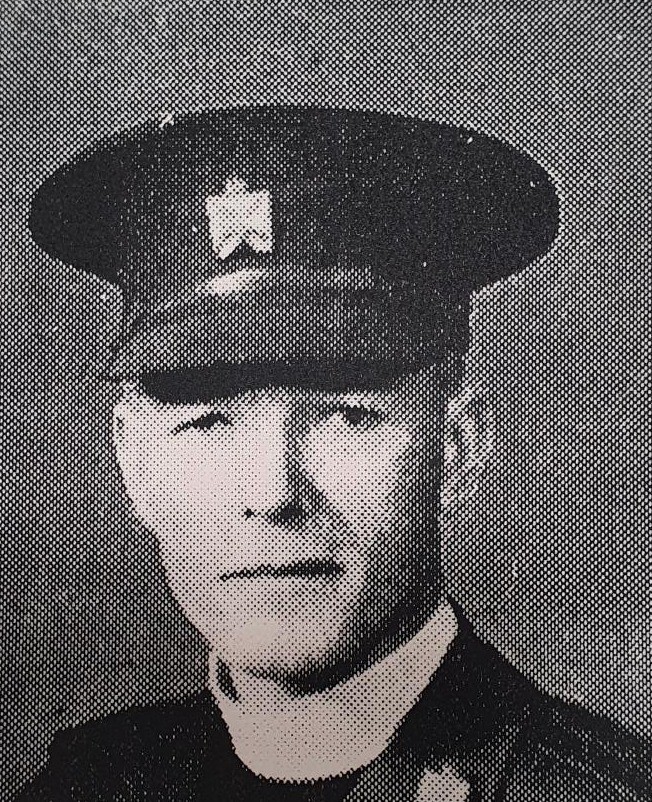
Donald Macleod headshot. 32856 Presbyterian Church of Queensland collection, John Oxley Library, State Library of Queensland.
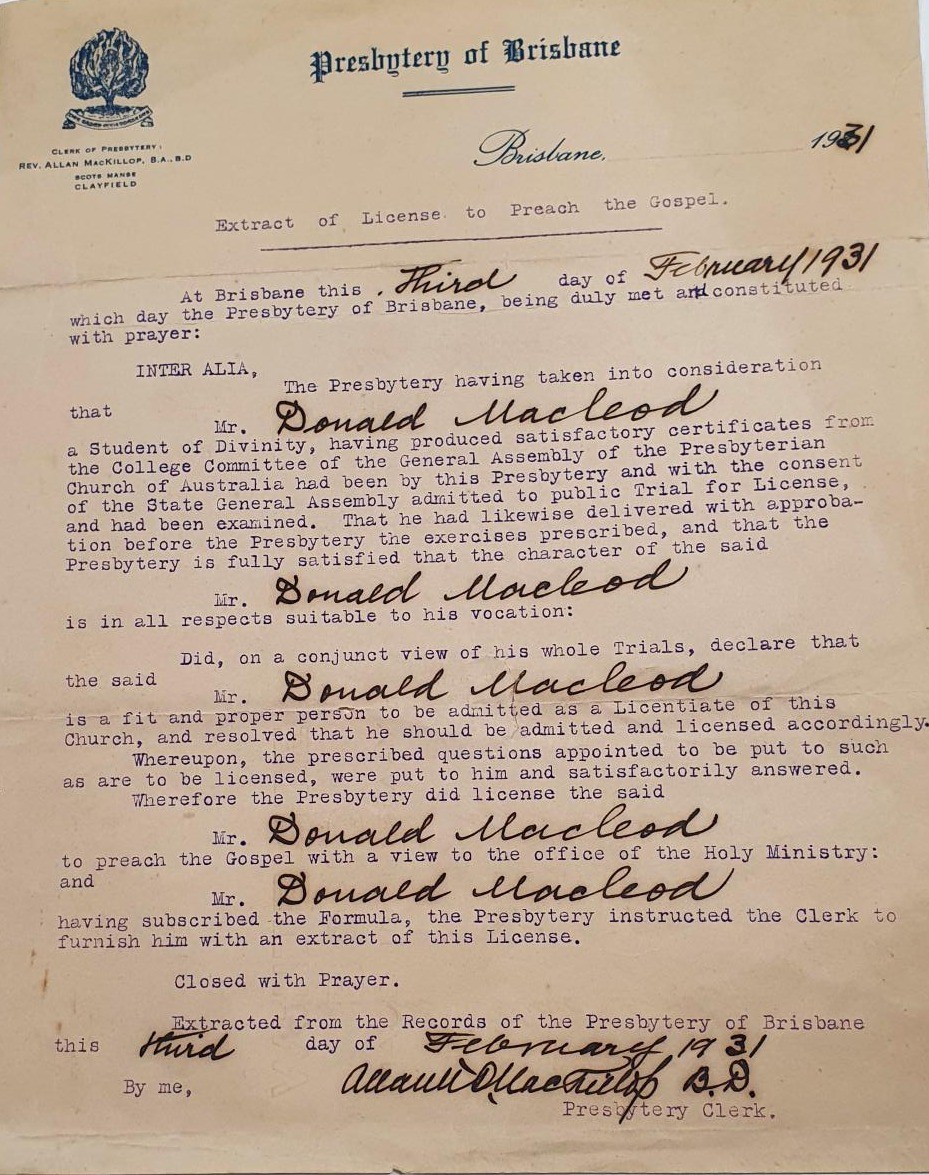
License to Preach the Gospel, Donald MacLeod, issued 3 February 1931. 32856 Presbyterian Church of Queensland collection, John Oxley Library, State Library of Queensland.
Detour into crime fiction
At an undetermined time during the war – possibly during Macleod’s leave, or a hospital stay – he found time to turn his hand to writing crime fiction. On the stationery of ‘The Canberra: Brisbane’s Leading Private Hotel’, Macleod began what he titled a ‘war diary’. This particular diary consisted of nine pages of recollections before changing course and becoming 59 pages of an Agatha Christie-style detective novel. The untitled story had many elements found in the whodunits of the Christie era, such as a mysterious poisoning and a cast of upper-class British characters and their large contingent of staff, such as the gamekeeper of the lodge and the local maid; the various inspectors, detectives, and constables on the case; and the medical expert. Unfortunately, the story appears to be unfinished.
The Siege of Tobruk
Macleod’s unit, the 2/2 Casualty Clearing Station (2/2 CCS), was in Libya during the Siege of Tobruk. There, he witnessed much loss of life, and as chaplain an important part of his role was to go to the cemetery to bury the dead, no matter the conditions. After a blitz on April 10 lead to many casualties, he wrote:
There were a lot of patients killed as well [as the servicemen]. It was a sad day for the 2/2 CCS to see these gallant lads passing out. Next day we went out to the cemetery on the perimeter to bury them and on the way coming back had to take refuge on two occasions from bombers diving on the harbour.
The inscription on the back of a photograph of Macleod at Tobruk with an unidentified man reads:
This photo was taken in Tobruk in April 1941, during the crucial first days of the siege. We are keenly looking towards the [ … ] battery which is in action against enemy planes and the photo is with the compliments of Major Casey.
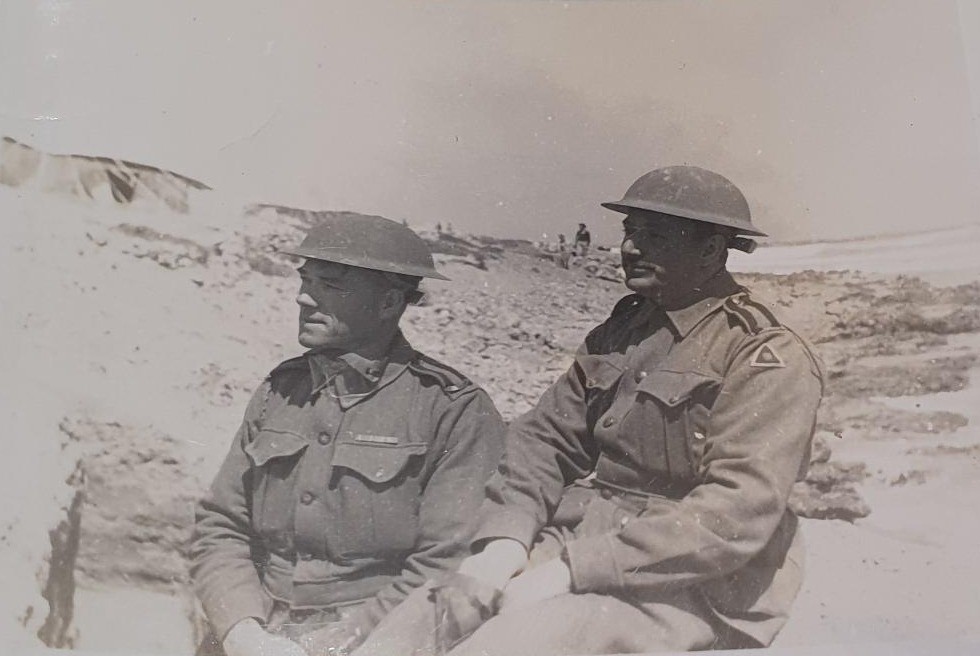
Donald MacLeod in the Siege of Tobruk, April 1941. 32856 Presbyterian Church of Queensland collection, John Oxley Library, State Library of Queensland.
The ‘Holy Land’
Macleod had the opportunity to travel to the ‘Holy Land’ during this second year of wartime service. Among his papers is the Order of Divine Service on the Occasion of the Constitution of The Presbytery of Jerusalem in St Andrew’s Church, dated 1 November 1941. This church in Jerusalem, also known as the Scots Memorial Church, was built in 1927 as a memorial to Scottish soldiers who fought and died around this area during World War One. Macleod wrote: ‘Jerusalem is a hybrid city – old and new, modern and archaic.’ He praised the prominent buildings of the new city but disapproved of the old city buildings:
'Many of the buildings lay great claim to antiquity but by far most of them can not prove either antiquity or even a historical place in the current literature of the land. The very air of superstition in which they are clothed is a scandal and an offence to the message and the mission of Jesus Christ.'
Soon after, on 5 November, Macleod was among a party who then embarked on a three-day tour through ‘a portion of the Holy Land’. An account of the tour was written by Padre F.J. Camroux. The tour took in the religious sites of Lydda, Mount Carmel, Nazareth, and the Cana of Galilee. In Hadera, Camroux noted that the party was ‘reminded us of our own Australia, because this town can boast in that it possesses the largest eucalyptus grove in the whole of Palestine.’ There was also time for a little recreation, with swims in the Sea of Galilee at Tiberias and the Mediterranean Sea at Tel Aviv, and a stop at Tiberias’s ‘famous Hot Springs and Baths’.
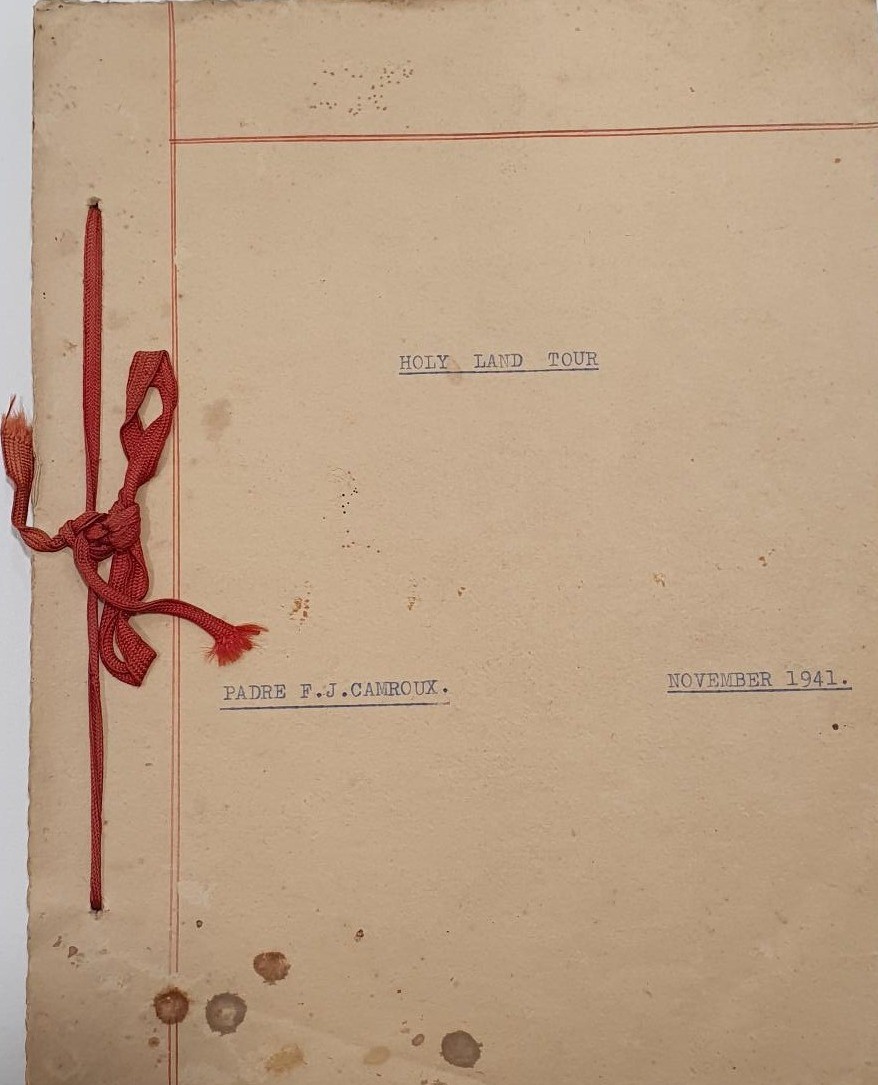
Donald Macleod was among a party who embarked on a three-day tour through ‘a portion of the Holy Land’. An account of the tour was written by Padre F.J. Camroux, November 1941. 32856 Presbyterian Church of Queensland collection, John Oxley Library, State Library of Queensland.
The Kokoda Campaign
In mid-1942 Macleod’s unit was back in Australia, around Tenterfield, when ‘Australia decided that its defensive perimeter against the Japs should be in New Guinea’, he wrote. Boarding ship in Brisbane on a ‘beautiful sunny day, [he] said goodbye to Brisbane and to home’. In Papua New Guinea, the 2/2 Casualty Clearing Station hiked to an area of high ground suitable for making their base. Macleod wrote that ‘once set up and with the opening of the Kokoda campaign we set the pace [ … ] Under parlous conditions patients were brought over rough terrain – deep ravines, swollen rivers and through fearful muddy ways but the Fuzzy Wuzzie’s track never failed the men’.
Macleod spent almost 18 months in Papua New Guinea before being granted leave. On 1st February 1944, he sailed ‘on a liberty ship carrying 1100 men’ bound for Australia. He wrote:
The sight of Brisbane was pleasant after an absence 18 months and the leave of 42 days was thoroughly enjoyed despite the fact that malaria intervened and sent me for 14 days to the hospital. The rest of the leave was spent in Southport and Burleigh Heads.
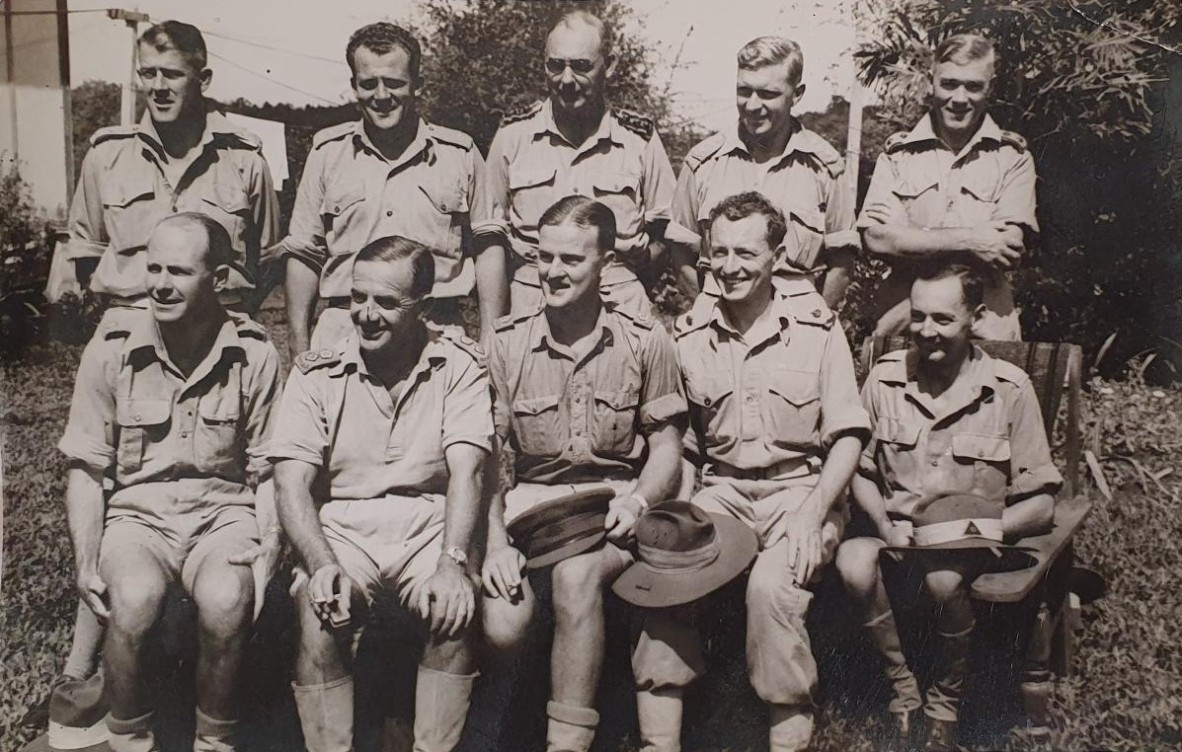
Chaplain Donald Macleod's unit in Papua New Guinea, 1942. 32856 Presbyterian Church of Queensland collection, John Oxley Library, State Library of Queensland.
Back to Australia, then back to Papua New Guinea
When his leave ended, Macleod was sent to the training area at Atherton Tablelands. Here, he reported that boredom led to the troops being ‘more discontented here than in an active place of operations’. One compensation was that ‘for the first time since the war began a xmas was had on the mainland. Both patients and personnel enjoyed this in a big way’.
In mid-March 1945, Macleod was hospitalised with dysentery. He kept himself occupied in hospital by making a ‘scarf of my own tartan’ and was discharged after one week. Early May brought welcome news to the Atherton camp:
SURRENDER OF GERMANY CONFIRMED war in Europe OVER. Rejoicing everywhere – great excitement [ … ] European news everywhere received with joy. War in the west finished: ready for the final punch now.
But the war was not yet over. From early to mid-1945, the different divisions at the Atherton camp (sixth, ninth, and seventh) were sent on separate ways to continue their war service. Macleod’s division returned to Papua New Guinea. At Morotai, he wrote:
The weather was very humid and one escaped now and then for a swim on the coral reefs. Of the Guards Battalion on the Western desert, it was said that “they died with their boots on” but here we swam with our boots on as it was impossible to move on the reef without boots.
Macleod received the honour of a 'Mention in Despatches’ in the Commonwealth Gazette on 15 March 1945. A letter of congratulations, sent to Macleod from the Presbyterian Church of Queensland’s Committee on Defence Force Chaplains in May 1945, indicates that Macleod was recognised for his ‘gallant service in the Pacific area’. Committee convenor Robert H.C. Crowe, who wrote the letter, added:
from time to time the Committee has heard of the great love you have for this service to which God has called you, and their prayers are that you may know continued blessing in the time of conflict which still remains and many years of still continued effectiveness in the days of peace.
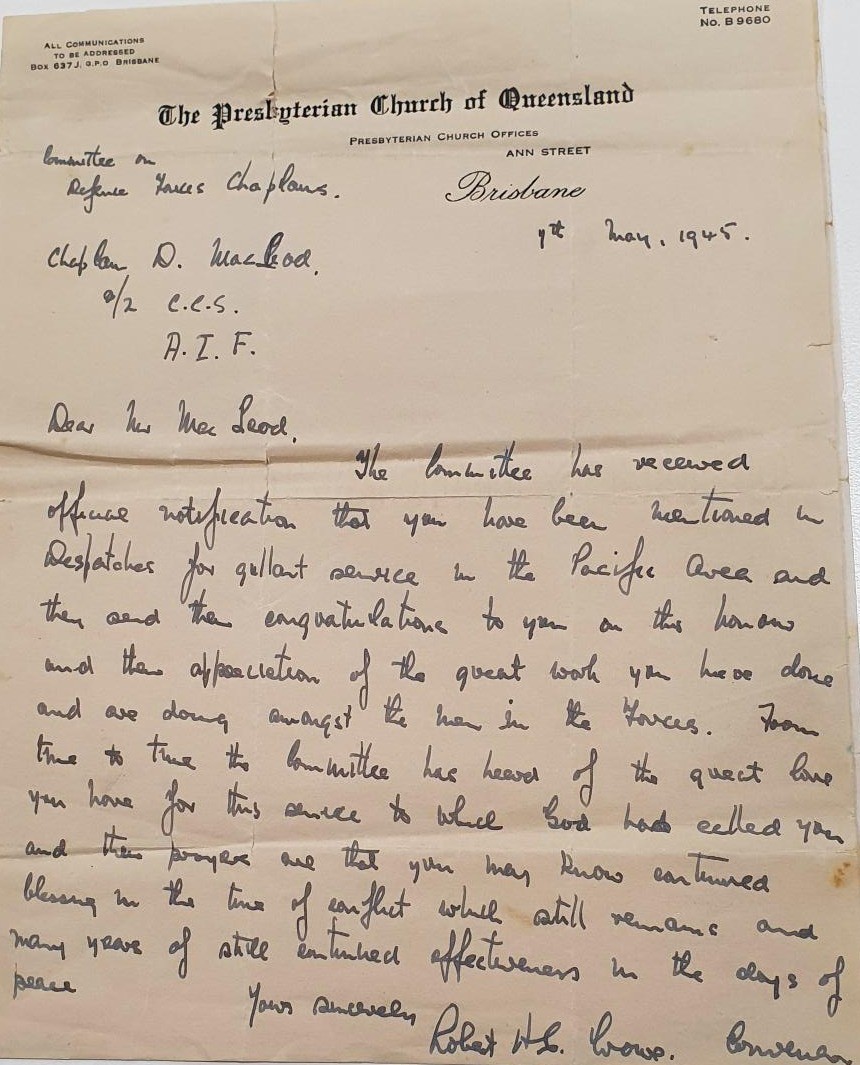
A letter of congratulations, sent to Donald Macleod from the Presbyterian Church of Queensland’s Committee on Defence Force Chaplains in May 1945, indicates that Macleod was recognised for his ‘gallant service in the Pacific area’. 32856 Presbyterian Church of Queensland collection, John Oxley Library, State Library of Queensland.
The Battle of Balikpapan and its casualties
The 2/2 Casualty Clearing Unit was present during the Battle of Balikpapan and its aftermath, moving around by ship to war-torn regions within Papua New Guinea. The following writings from Macleod’s diary record some of his thoughts around the time of the battle, a conflict that lasted for much of July 1945.
Arrived on the beach [ … ] along the foreshore the scene was undesirable – palm trees with their tops lopped off, buildings blown to rubble packages of all kinds and descriptions lying about and the one available road [on] the waterfront full of traffic – a real tide of war. [ … ] Dug into their fox holes the Japs were now offering stiff resistance, oil tanks were a blazing inferno vomiting dense clouds of black smoke or were already gaunt looking spectral blackened ruins.
A few Jap prisoners, the first trickle of what later became a swollen stream were gathered into the POW compound. Air evacuation was carried out for our war wounded, those who “gave the world away” were laid to rest in a temporary place.
The campaign was shorter than even the 1st battle on the western desert, only lasting a bare 6 weeks but during the period the fighting was hard [ … ] Though on the whole for the nature of the campaign casualties were relatively light. With very skilled surgery, blood transfusions and the liberal use of penicillin the death rate from wounds was remarkably low – in fact a model of scientific warfare in medicine applied to battle casualties, but casualties there were both of our own and that of the enemy. Despite the authenticated information available of Jap atrocities against our troops the bets care and attention was bestowed upon their wounded – the law of service in action knows neither friend nor enemy – it serves because it wants to.
One of Macleod’s duties as chaplain was to censor mail and to write on behalf of others. One letter that has survived was written on behalf of Private Arthur Trevor Jorgensen, a 20-year-old from Toowoomba who had been shot and seriously injured during the Battle of Balikpapan. Part of the letter reads:
The letter is being written by Chaplain Macleod who visits the ward. But later on I shall try and give you full details of how it happened. But I don’t want you to get worrying over me because I shall be doing alright – perhaps even get back to Australia.
The letter is being written by Chaplain Macleod who visits the ward. But later on I shall try and give you full details of how it happened. But I don’t want you to get worrying over me because I shall be doing alright – perhaps even get back to Australia.
In September 1945 Jorgensen was one of 29 passengers homeward bound on the Royal Australian Air Force (RAAF) Dakota A65-61. The plane crashed in the mountain ranges of Papua Provence, killing all on board. The crash of Dakota A65-61 remains the largest single air disaster in the history of the RAAF.
The end of the war
The Japanese Instrument of Surrender was formally signed on 2nd September, but the withdrawal from the Pacific was gradual. Macleod was to spend Christmas and New Year’s in Papua New Guinea; his New Year’s Eve was spent packing, cleaning, and preparing to return home in January. With the conflict at an end, he had time to reflect on his war experience, writing:
What has been the value of serving in the forces as a chaplain? No one can answer this in tangible terms but the avenues for service were many and varied. And the experience has been full and rich. Was it worth trailing from Australia to Benghazi, Java, New Guinea and Borneo? I believe so and I feel that I would not have missed it for the world. For I sat where the men sat and now understand much about the common man – he is the salt of the earth.
Ten days shy of his fiftieth birthday on 28 February 1946, Donald Macleod was discharged from the army, and his life in Australia with Dorothy and within the church resumed. Among the Reverend and Mrs. Macleod’s social duties was hosting the annual Highland Ball in Grafton. The Ladies of St Andrew’s Presbyterian Church Guild provided supper while Reverend Macleod presided over events.
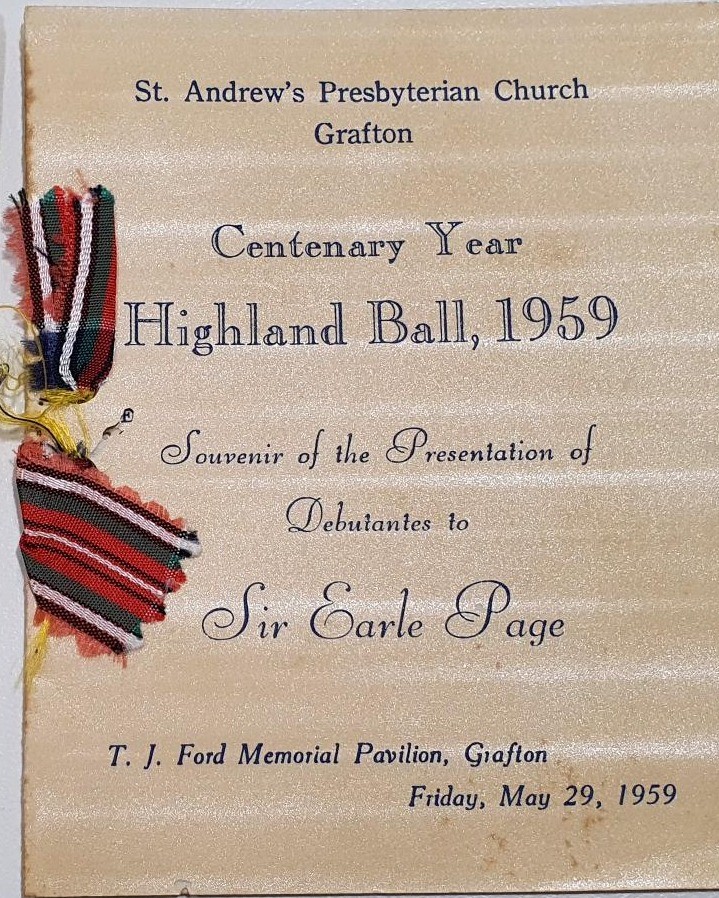
St Andrew’s Presbyterian Church, Highland Ball 1945 souvenir program. After retiring from the Defence Force, among the Reverend and Mrs. Macleod’s social duties was hosting the annual Highland Ball in Grafton.
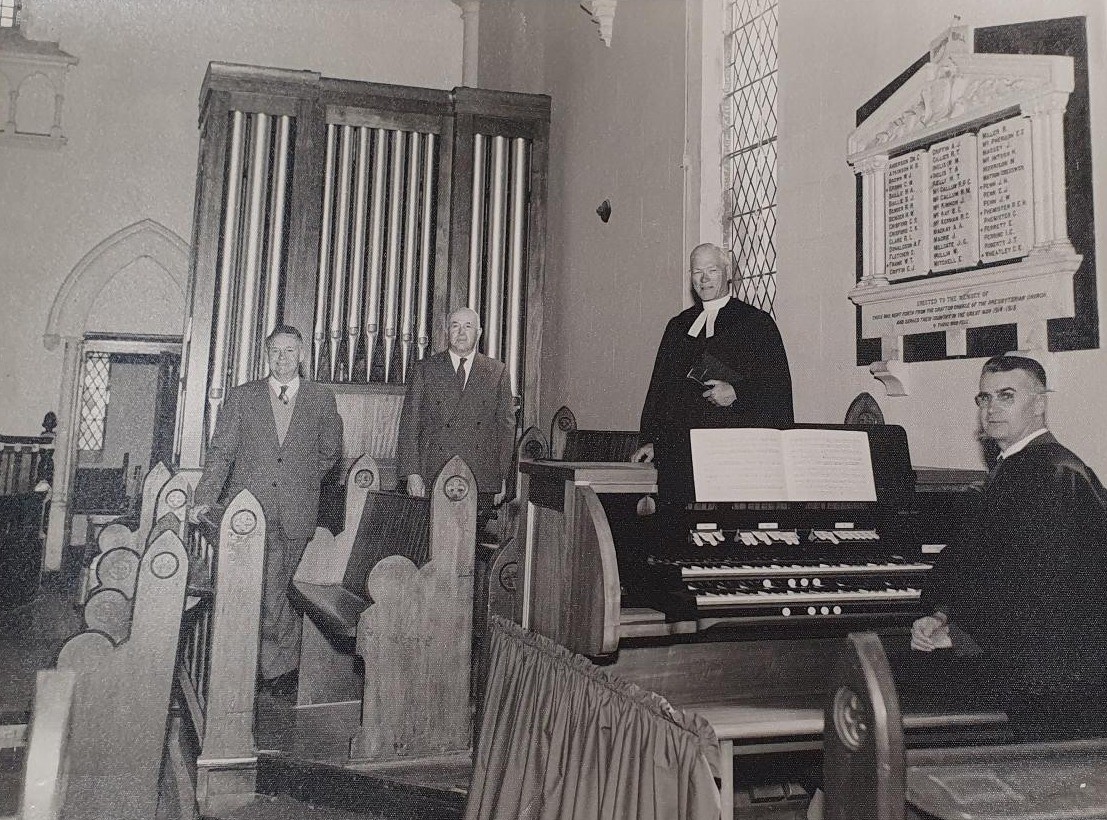
Reverend Donald MacLeod. 32856 Presbyterian Church of Queensland collection, John Oxley Library, State Library of Queensland.
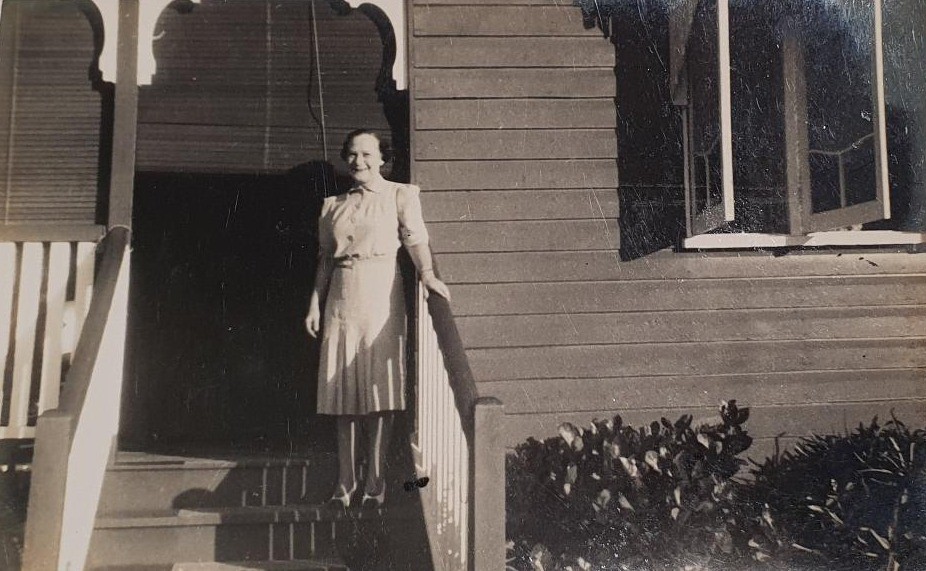
Dorothy MacLeod. 32856 Presbyterian Church of Queensland collection, John Oxley Library, State Library of Queensland.
Reverend Donald Macleod died in Southport, Queensland, on 21 March 1971, aged 75 years. Memorial services took place at St Andrew’s Presbyterian Church, Southport, and in the East Chapel of the Mt Thompson Crematorium in Brisbane. Reverend Macleod was survived by his wife Dorothy Macleod.
Guest blogger Tara Burns
Collections
- 32856 Presbyterian Church of Queensland collection, John Oxley Library, State Library of Queensland
Service record of Donald Macleod QX6347
- Australian War Memorial, Chaplain Donald Macleod
Comments
Your email address will not be published.
We welcome relevant, respectful comments.